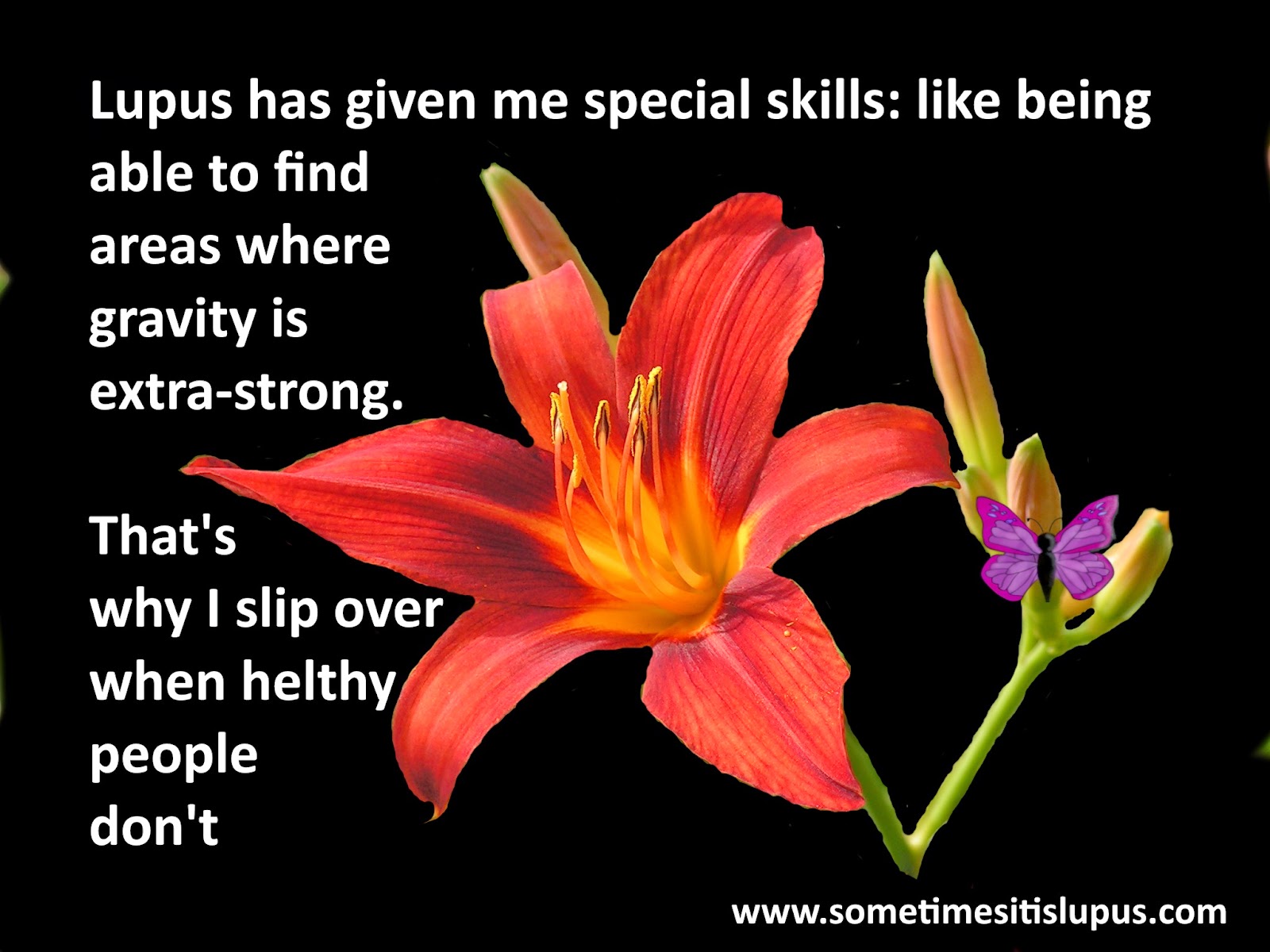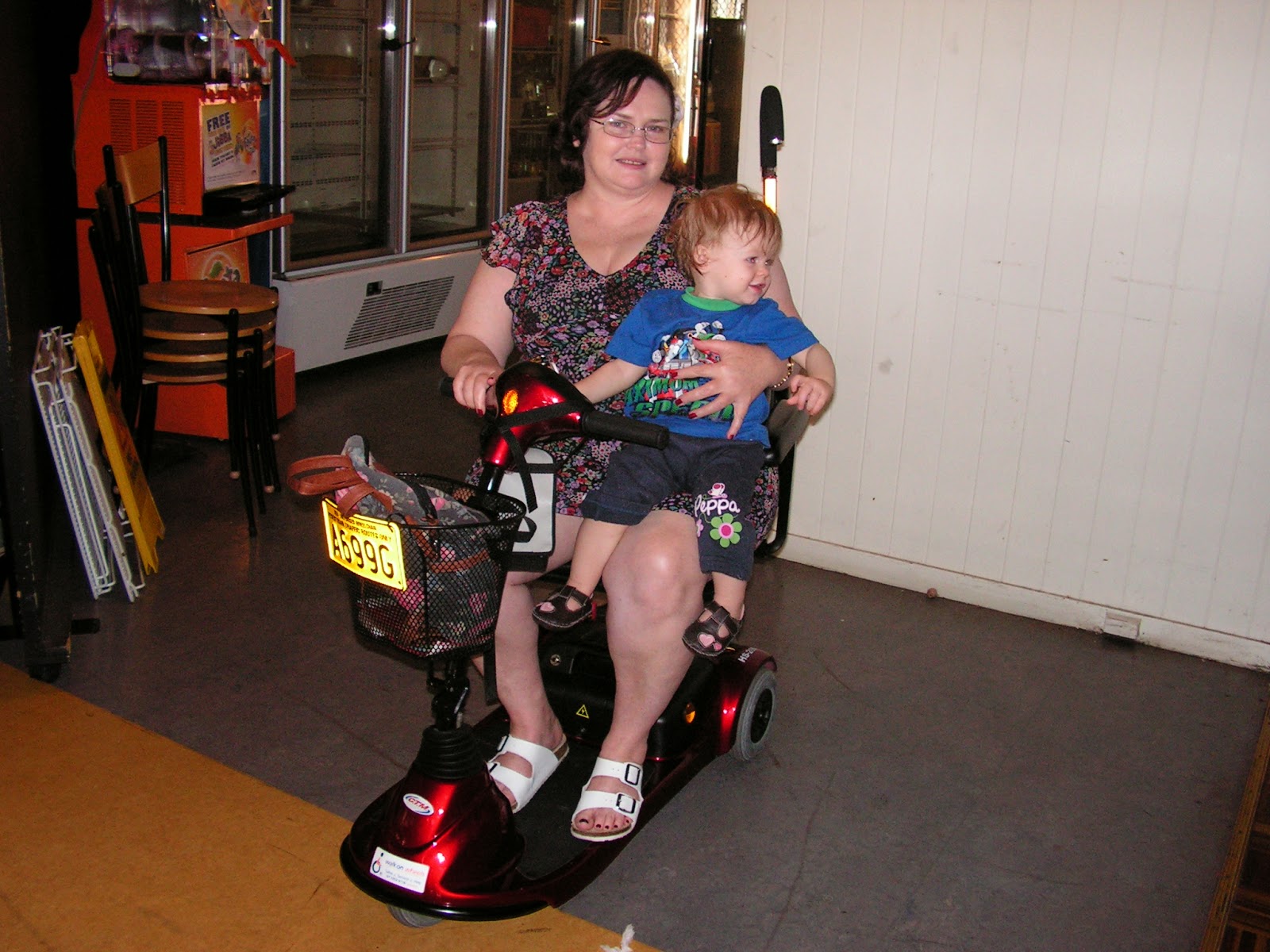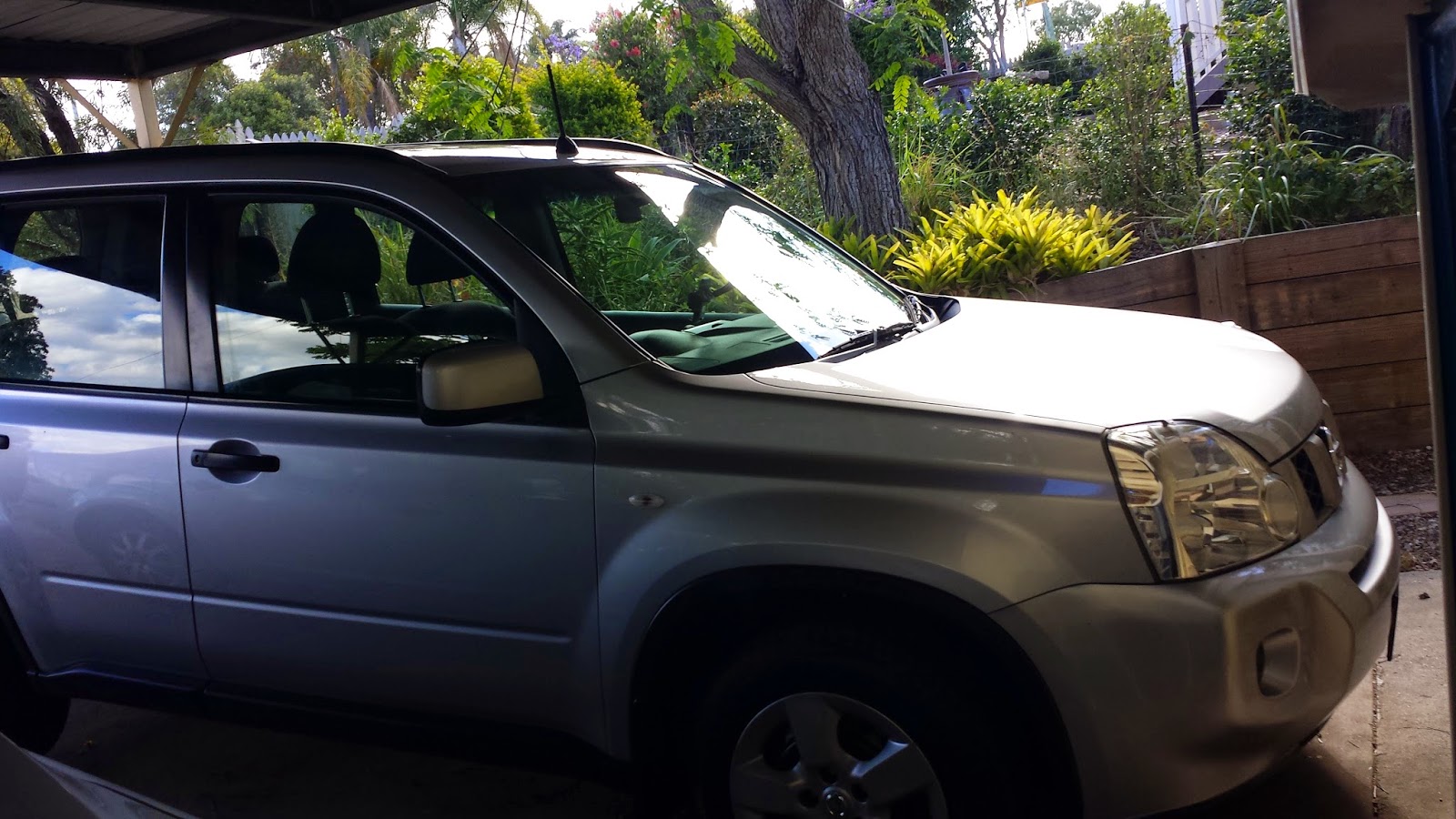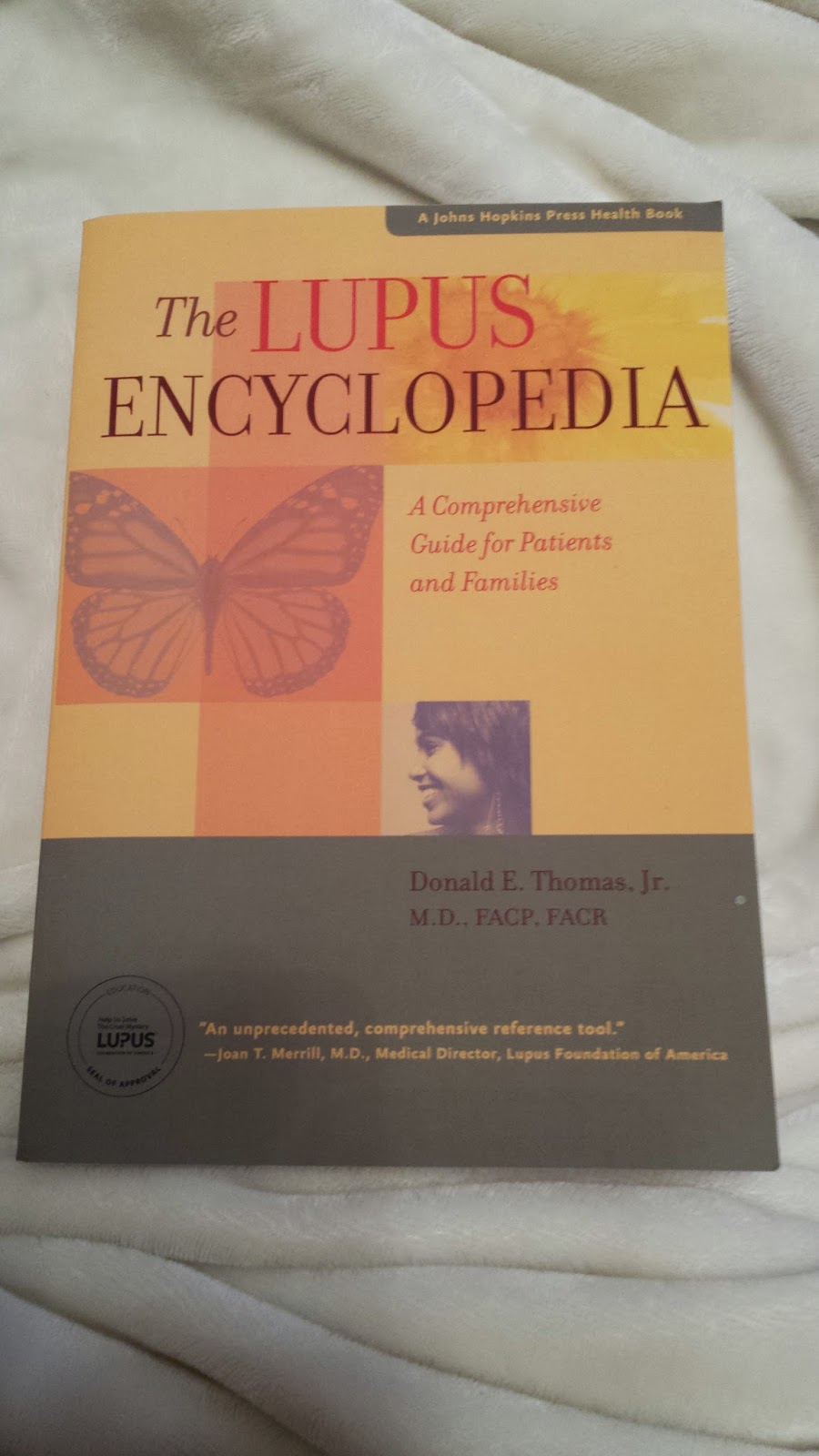It's Friday.
It was kind of a surprise to discover that this evening, because I personally have been having a Saturday. It's not that I chose to have a Saturday on Friday, just that I honestly believed it was Saturday.
I've been having issues with cognitive function for a long time now.
I would tell you how long, but I really don't remember.
I'm on a waiting list for the Neurology Clinic at the Royal Brisbane and Women's Hospital, but I've been on the waiting list for years. The latest letter from them tells me I'm still on the waiting list. There's no indication of how much longer I'll need to wait.
In the meantime, my GP has come up with an idea to deal with some of the symptoms of my cognitive issues, even if we can't do anything about the cause. She's sent me to a psychologist to help me with memory and the fuzzy thinking/confusion I get sometimes. She's also sending me to an occupational therapist to look at the clumsiness that seems to go with the confusion.
So far I've had my introductory meeting with the psychologist. It was just for him to gather information about the problem. He's thinking about strategies for me for our next meeting on Monday. Hopefully, he and I will both be having a Monday at the same time.
I haven't seen the occupational therapist yet. I think I may have forgotten to make the appointment, or maybe I did make the appointment and forget to go. If anyone knows where I left the information the doctor gave me about the occupational therapist, please call me and tell me.
So, hopefully, between the psychologist and the occupational therapist, I may have some very good strategies for managing my brain fog soon. I'll let you know how it all goes. If I remember.
Pages
- Home
- Newly Diagnosed?
- Links
- Business Directory
- In Memorium
- Warriors' Wall
- About
- Bookshop
Friday, 31 October 2022
What was I going to say?
Posted by
Iris Carden
at
20:36
2 comments:
Links to this post

| Reactions: |
Email ThisBlogThis!Share to TwitterShare to FacebookShare to Pinterest
Labels:
symptoms,
tips and tricks
Friday, 24 October 2022
Oops
 We've had to put one of those non-stick mats in the bath.
We've had to put one of those non-stick mats in the bath.You see someone, I won't mention who, slipped over getting into the shower the other night.
I could blame lupus for this - brain fog, poor co-ordination, you know all that stuff goes together.
But that's not the truth.
You see the truth is that there's a scientific anomaly in my bathroom. Gravity is significantly stronger just in my bathtub.
The CSIRO would have been in to investigate, but they had their funding cut in the last Federal budget.
So, as we've no anti-gravitational devices to counter the extra strength of gravity in just that spot, we've put in a non-slip mat so as to make it harder to slip over.
In fact, when we brought the mat home, my son put it in the bath tub, and then jumped up and down on it to ensure the suction cups on the bottom were holding it securely in place.
Posted by
Iris Carden
at
20:56
1 comment:
Links to this post

| Reactions: |
Email ThisBlogThis!Share to TwitterShare to FacebookShare to Pinterest
Labels:
lifestyle,
tips and tricks
Changing Gear
Fairly soon after I was diagnosed, I upgraded my little manual car to an automatic with power
steering.
I loved my little Ford Focus, and took very good care of it. Buying it brand new, I'd planned to stay with this one car for a very long time. It was easier to drive than my previous car, the steering was light, I could handle it even on days when all my joints hurt.
I failed to take one thing into account in choosing it. A Focus is a fairly small car. That was fine to start with. Once I needed to start carrying extra things to help me with mobility, the car didn't have quite enough space. First, it was the wheelchair. Then, to be a bit more independent, I got a groovy little red mobility scooter. Now, I don't need someone to push me around.
The scooter breaks down into small enough parts to put into the boot of a Focus, but then I needed to have someone with me wherever I went, to get all the pieces out of the car and assemble it, and to break it down and put it back in the car again later. The boot of the car was then full, with no room left to put the groceries, or anything else I might have wanted to carry.
So this week, I did the unthinkable. I traded in my little car that had less than 60,000km on the odometer, for a very well used Nisan XTrail four wheel drive.
It's close to the same age as the Focus was, in years, but has more than 200,000 on the odometer. So I guess it's a car with experience. Second-hand was the only way I was going to afford a 4WD.
The benefit is, that my scooter doesn't have to be broken into as many parts - so is easier to set up and put away.
Add to that, my son has promised me an early Christmas present - he has it on order to pick up next week - a folding ramp to make getting the scooter in and out of the vehicle simple and light enough that anyone, hopefully even me, could do it.
Of course, there's also heaps of room in the back for me to get shopping and whatever else I need and carry it home, too.
I was a bit sad about changing cars. You might have guessed. I was also a bit concerned. I drove 4WDs when I was younger, but haven't done so for years. I remember them being heavy to handle, but I was much stronger back then. Fortunately, that has changed dramatically. This is automatic, has power steering, and in two wheel drive mode, is no harder to handle than the smaller car was. I also remember 4WDs requiring a great deal of effort to climb into. This one's not all that much higher than a regular car, and I can step into it, rather than climb.
 |
| Driving my little mobility scooter (with help from my small "co-pilot"). |
I loved my little Ford Focus, and took very good care of it. Buying it brand new, I'd planned to stay with this one car for a very long time. It was easier to drive than my previous car, the steering was light, I could handle it even on days when all my joints hurt.
I failed to take one thing into account in choosing it. A Focus is a fairly small car. That was fine to start with. Once I needed to start carrying extra things to help me with mobility, the car didn't have quite enough space. First, it was the wheelchair. Then, to be a bit more independent, I got a groovy little red mobility scooter. Now, I don't need someone to push me around.
The scooter breaks down into small enough parts to put into the boot of a Focus, but then I needed to have someone with me wherever I went, to get all the pieces out of the car and assemble it, and to break it down and put it back in the car again later. The boot of the car was then full, with no room left to put the groceries, or anything else I might have wanted to carry.
So this week, I did the unthinkable. I traded in my little car that had less than 60,000km on the odometer, for a very well used Nisan XTrail four wheel drive.
 |
| The "new" car - with experience. |
The benefit is, that my scooter doesn't have to be broken into as many parts - so is easier to set up and put away.
Add to that, my son has promised me an early Christmas present - he has it on order to pick up next week - a folding ramp to make getting the scooter in and out of the vehicle simple and light enough that anyone, hopefully even me, could do it.
Of course, there's also heaps of room in the back for me to get shopping and whatever else I need and carry it home, too.
I was a bit sad about changing cars. You might have guessed. I was also a bit concerned. I drove 4WDs when I was younger, but haven't done so for years. I remember them being heavy to handle, but I was much stronger back then. Fortunately, that has changed dramatically. This is automatic, has power steering, and in two wheel drive mode, is no harder to handle than the smaller car was. I also remember 4WDs requiring a great deal of effort to climb into. This one's not all that much higher than a regular car, and I can step into it, rather than climb.
Posted by
Iris Carden
at
19:57
1 comment:
Links to this post

| Reactions: |
Email ThisBlogThis!Share to TwitterShare to FacebookShare to Pinterest
Labels:
lifestyle,
tips and tricks,
travel
Thursday, 9 October 2022
Review: The Lupus Encyclopaedia
Everyone who has lupus should have at least one good basic information book about lupus.
The one I bought when I was first diagnosed was read cover to cover, front to back, back to front, topic by topic, until the print was almost worn off the pages. That book's a bit dated now, but I still wouldn't ever throw it out. It's what told me that what was happening to me had an explanation, that I wasn't the only person in the world to go through this, and there was hope of getting things under control.
Earlier this year, I was sent a review copy of a book that I think is going to fulfill that same role for lots of newly-diagnosed lupies for a number of years to come. It's a good reference for those of us who've been diagnosed for a while as well. It's The Lupus Encyclopaedia, by Dr Donald E Thomas, Jr.
I've been a bit slow to get around to reviewing it for a number of reasons, not the least of which is that I've been struggling with brain fog, and was afraid it was too complex to handle.
It's a huge book. If you're brain fogged, like me, you may think it's going to be overwhelming.
Good news. You don't have to have the concentration to read it cover to cover. You don't have to be an expert on the terminology rheumatologists will use, even though it's written by a rheumatologist.
Once I had the courage to open the cover, I found it was not only nowhere near as intimidating as I thought, but actually incredibly accessible and useable.
The book is helpfully broken into chapters, which you can read as you have a particular need or interest (ie, when a crisis comes, and you want to know what this latest test result means, or what this latest term the doctor is using actually means in the real world.) Each chapter can be read on its own - without needing to have read the chapters that precede it.
It also has an incredibly useable index at the back. (And you know not all books, even the ones that might otherwise be useful, do.)
Dr Thomas does use the medical terminology - but he explains it in everyday language. He manages to do that without "talking down" to his reader, which is a plus. I, for one, struggle enough in brain foggy times without feeling that authors might think I'm dumb.
If a doctor uses a term I don't know, I can make a note of it, and then find it in the index of the book, which will take me to a simple, understandable, explanation.
The information is reliable, and up-to-date. It relies on current research, and Dr Thomas' own and his colleagues' experiences dealing with real-life lupus patients.
I know I'm going to get a lot of use out of my copy. I suspect other lupies will get lots of use out of theirs'.
THOMAS, Donald E, Jr. The Lupus Encyclopaedia: A Comprehensive Guide for Patients and Families. Baltimore: Johns Hopkins University Press, 2014.
 |
| The Lupus Encyclopaedia by Dr Donald E Thomas, Jr. |
The one I bought when I was first diagnosed was read cover to cover, front to back, back to front, topic by topic, until the print was almost worn off the pages. That book's a bit dated now, but I still wouldn't ever throw it out. It's what told me that what was happening to me had an explanation, that I wasn't the only person in the world to go through this, and there was hope of getting things under control.
Earlier this year, I was sent a review copy of a book that I think is going to fulfill that same role for lots of newly-diagnosed lupies for a number of years to come. It's a good reference for those of us who've been diagnosed for a while as well. It's The Lupus Encyclopaedia, by Dr Donald E Thomas, Jr.
I've been a bit slow to get around to reviewing it for a number of reasons, not the least of which is that I've been struggling with brain fog, and was afraid it was too complex to handle.
It's a huge book. If you're brain fogged, like me, you may think it's going to be overwhelming.
Good news. You don't have to have the concentration to read it cover to cover. You don't have to be an expert on the terminology rheumatologists will use, even though it's written by a rheumatologist.
Once I had the courage to open the cover, I found it was not only nowhere near as intimidating as I thought, but actually incredibly accessible and useable.
The book is helpfully broken into chapters, which you can read as you have a particular need or interest (ie, when a crisis comes, and you want to know what this latest test result means, or what this latest term the doctor is using actually means in the real world.) Each chapter can be read on its own - without needing to have read the chapters that precede it.
It also has an incredibly useable index at the back. (And you know not all books, even the ones that might otherwise be useful, do.)
Dr Thomas does use the medical terminology - but he explains it in everyday language. He manages to do that without "talking down" to his reader, which is a plus. I, for one, struggle enough in brain foggy times without feeling that authors might think I'm dumb.
If a doctor uses a term I don't know, I can make a note of it, and then find it in the index of the book, which will take me to a simple, understandable, explanation.
The information is reliable, and up-to-date. It relies on current research, and Dr Thomas' own and his colleagues' experiences dealing with real-life lupus patients.
I know I'm going to get a lot of use out of my copy. I suspect other lupies will get lots of use out of theirs'.
THOMAS, Donald E, Jr. The Lupus Encyclopaedia: A Comprehensive Guide for Patients and Families. Baltimore: Johns Hopkins University Press, 2014.
Posted by
Iris Carden
at
18:56
No comments:
Links to this post

| Reactions: |
Email ThisBlogThis!Share to TwitterShare to FacebookShare to Pinterest
Labels:
reviews
Subscribe to:
Posts (Atom)

